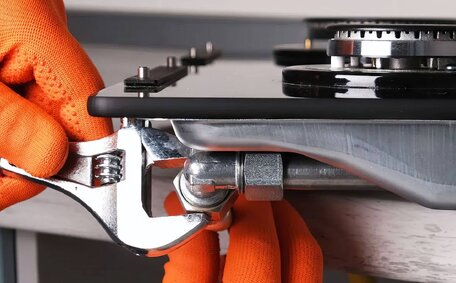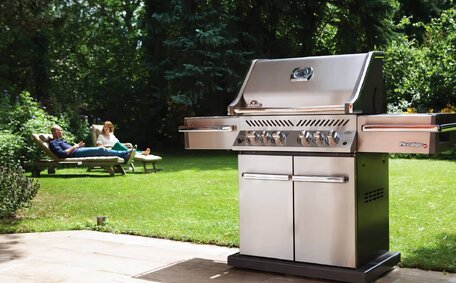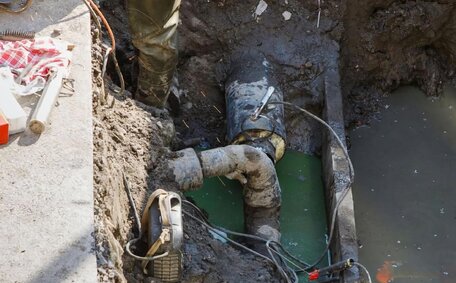
The role of gas fitting in kitchen renovations
When renovating your kitchen, it’s important to engage a licensed gas fitter to safely install, replace or alter any gas appliances and pipes. This ensures
Read MoreA reliable hot water heater is essential for home comfort. If you encounter problems, seek a plumber with current heating technology expertise. A key decision in installing or replacing your hot water system is determining whether to DIY or engage a professional plumber.
A variety of hot water systems such as gas, electric, solar, heat pump, and tankless units are available, catering to different household needs. Each hot water system type offers specific advantages and disadvantages to weigh up, ensuring you pick the best fit for your home.
While DIY water heater installation may seem cost-effective, the risks of incorrect setup are significant. From gas line connections to extensions and alterations of existing pipework, water installation requires expertise to meet legal requirements and safety standards.
Hiring a licenced professional plumber for all plumbing work when you acquire a gas hot water system has significant advantages. Plumbers, with their thorough training and practical experience in various water heater models, possess the skills to accurately gauge, select, and fit the perfect system for your household.
When selecting a suitable hot water system, you can choose an option that fits your household’s unique needs and requirements perfectly. Considerations such as available space, household size, peak usage, and climate impact your choice of hot water system.
A general rule is to ensure your hot water system has a capacity of 50-80 litres per person for gas-electric models. So for your family of four, managing hot cold water needs, you would need a 200-320 litre system or larger. Consider also if you run laundry or dishwashing during peak periods.
A plentiful hot water supply is essential, especially during the morning rush before work or school.
Selecting an adequately sized hot water unit will make sure you have enough hot water for your household without wondering how much excessive costs on surplus heating will affect you.
Correctly sizing your hot water system is crucial for optimal energy efficiency. Heat pump units, a type of your water heater, perform better in such environments over solar power. In cooler climates, your plumber will tell you that your system will need to work harder to heat water.
Getting expert advice from a licensed plumber is very important to accurately assess your old household’s unique hot water needs. With extensive product knowledge and years assessing homes, plumbing professionals have the expertise to size, select and install the perfect system for your needs.
When installing hot water system components like a new gas model, it’s imperative to consider the type best suited to your needs and location. Key options include:
Electric hot water heaters employ an element within an insulated tank to heat water. They have relatively low running costs but higher environmental impact from electricity use.
Pros: Low upfront cost, easy to install and maintain.
Cons: Less energy efficient, higher greenhouse emissions.
Cost: $600 - $1,500 installed.
Natural gas hot water systems heat water in an insulated tank using a gas burner. Operational expenses are more economical compared to an electric water heater, although a gas water linkage is a necessity.
Pros: Low operating costs, fast heat up times.
Cons: Higher upfront cost, need accessible gas line.
Cost: $1,200 - $2,000 installed.
Solar hot water system use roof panels to heat water in a storage tank. Well suited to sunnier climates with north-facing roof space.
Pros: Extremely energy efficient, low greenhouse emissions.
Cons: Higher upfront cost, less effective in cooler or overcast areas.
Cost: $4,000 - $8,000 installed.
Heat pump heaters extract ambient heat to warm water efficiently to the desired temperature. More efficient than electric hot units in cool climates but require outdoor space for unit.
Pros: Energy efficient heating, low emissions.
Cons: Upfront cost, external unit placement.
Cost: $3,500 - $5,500 installed.
A professional can safely and precisely install your selected gas water heater, unlike the risks of DIY endeavors. Plumbers offer critical insights with their detailed product knowledge and installation expertise, ensuring the most suitable and economical hot water system for your home is selected.
Deciding between DIY or hiring a professional plumber for your water heater replacement impacts your hot water system requirements. DIY appears to be a cost-saving choice, but it is important to consider the associated risks. But there are risks involved if you don’t have the required technical skills and knowledge.
DIY water heater installation requires familiarity with local plumbing and gas fitting regulations. The intricacies of sizing, siting and connecting units to existing pipework make it complex. Accurate adjustments to venting, pressure release, condensate drains, and thermostat settings are essential when installing hot water heaters.
Without adequate training or licensing, trying to install hot water heater units can result in a hazardous or non-compliant installation. This can risk injury, damage or fines down the track. Not to mention possible leaks or faults requiring costly repairs later.
Engaging a professional plumber is essential to guarantee the proper function of your water heater, especially for gas units. With extensive training and years of hands-on system experience, plumbers ensure your unit is sized, selected and I install hot water correctly first time. While the upfront cost is higher, the installation process you save money long-term through safety, efficiency and peace of mind.
Attempting to install a water heater without the necessary tools and materials is not recommended. At minimum you’ll need:
Permits or authorisations may be needed before commencing water system installation:
Understanding local standards and building codes is essential before beginning hot water system installation. With intricate connections, venting, thermostat calibration and condensate management involved, it takes licenced professional expertise to safely introduce a new water heater to your system.
Installing a hot water system in your home is complex and should ideally be done by trained professionals. However, those doing it themselves must follow important safety precautions:
Hiring a professional plumber is advisable, given the expertise needed for venting, energy efficiency, and compliance. They can also assist with annual maintenance to maximise the 15-20 year lifespan of most units.
Engaging a professional plumber for hot water system repairs offers substantial benefits. Our extensively trained and licensed plumbers guarantee the correct sizing, selection and setup of your hot water system from the start.
Our team in Sydney, boasting over ten years of experience, provides these key benefits:
Investing in a professional installation ensures a reliable and efficient hot water setup, customised to your needs with expert support for any future issues. Contact our team today via email, phone or book your installation appointment online.
Installing water systems can lead to a number of issues that risk injury, increase energy costs, and require expensive repairs down the track.
Common installation mistakes when I install water heater units myself, DIYers make include:
With intricate aspects like energy efficiency tweaks for new water systems, leak testing, licencing and relief valves involved - the slightest oversight during installation can become a major issue later.
By hiring a plumber who is fully qualified and professional, potential installation risks are eradicated. Our extensive training and decades of hot water system expertise ensure everything is calibrated, secured, connected and tested correctly the first time - for safety, maximum efficiency and peace of mind.
Proper maintenance of your hot water heater is key to its efficiency and longevity, typically 10-15 years. Simple annual servicing by a professional can prevent more costly repairs down the track.
Routine maintenance should include:
Be alert to signs that your system requires updating, like rust accumulation, reduced hot water availability, rising energy costs, or malfunctioning pilot lights. Regular professional servicing can maintain system effectiveness for over a decade.
Our licenced technicians handle all aspects of hot water system maintenance. By identifying and rectifying minor issues early, we can extend the lifespan of your new water heater considerably - saving you thousands in replacement costs over time.
When renovating your kitchen, it’s important to engage a licensed gas fitter to safely install, replace or alter any gas appliances and pipes. This ensures
Read MoreGas line repairs require a licensed plumber to locate any leaks, fix damaged pipes and fittings, and properly seal everything to prevent future issues. Contact our emergency plumbers for safe and proper gas line repairs.
Read MoreDuring emergency plumbing situations, crucial safety precautions include turning off the main water supply to prevent flooding, wearing protective gear to avoid injuries, clearing standing water to minimize damage, and calling a licensed professional plumber for assistance.
Read MoreCecil Hills, 2171 NSW
We will call back as soon as possible.




